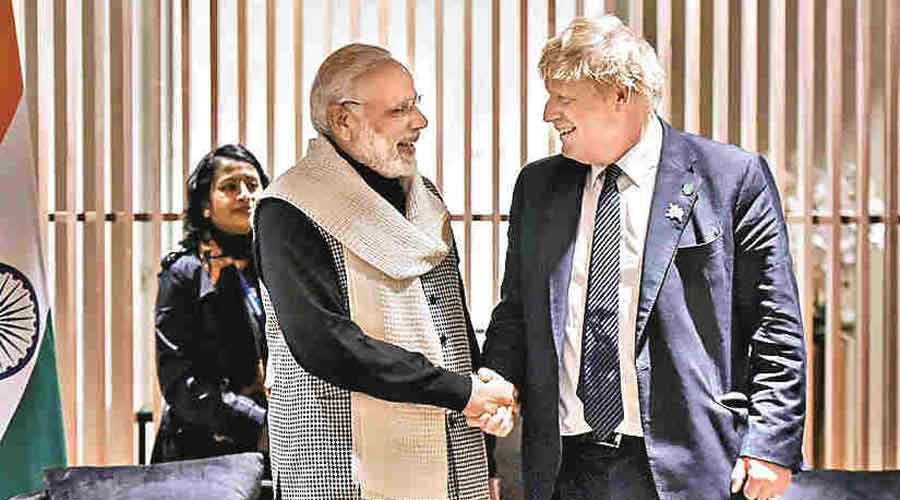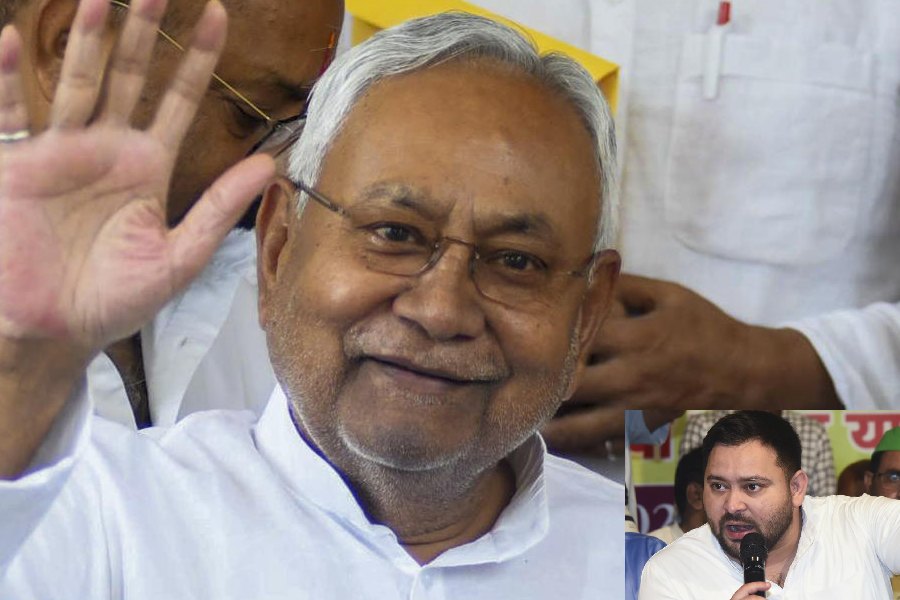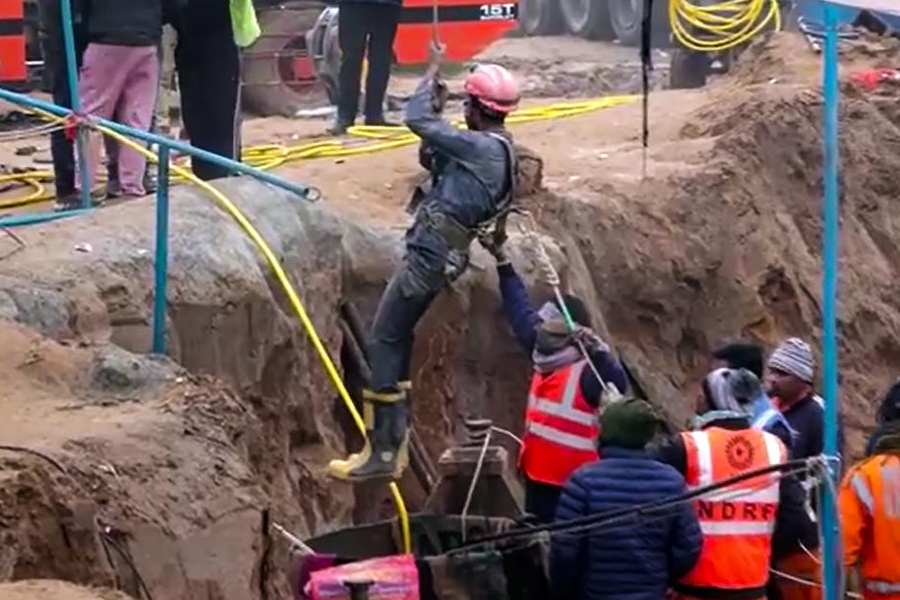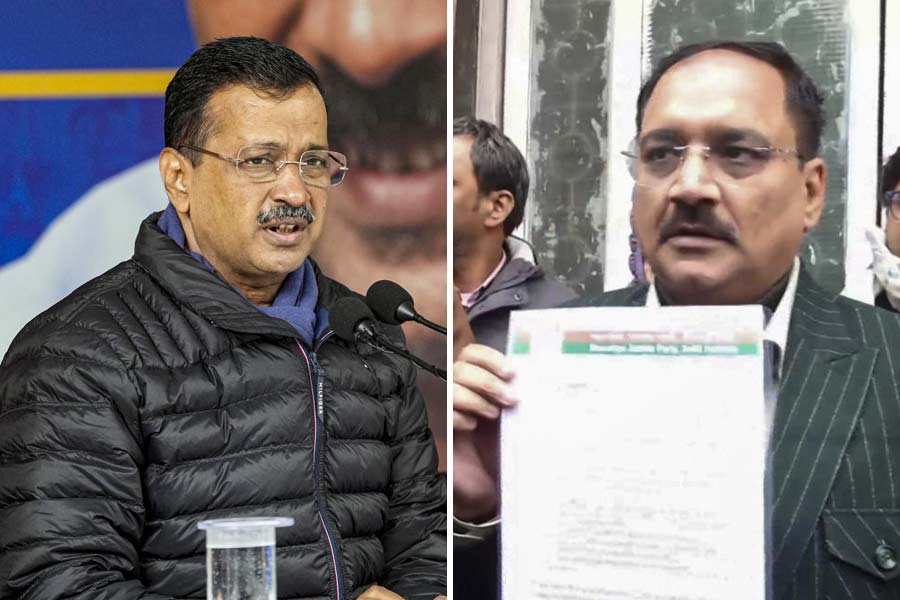India’s inability to deliver immediately to Britain 5 million of the agreed 10 million doses of the Oxford-AstraZeneca vaccine has prompted sections of the UK media to target Prime Minister Narenda Modi personally while his counterpart Boris Johnson rushed to defend India ahead of his Delhi trip.
The Daily Mail accused Modi of breach of trust and contract in an article headlined: “What else can we expect from a leader so vain he named a vast stadium after himself?”
The Mail highlighted the “sinister sectarian side” of Modi’s politics and noted — along with some other newspapers — that New Delhi was furious at British MPs’ criticism of the Indian government’s treatment of the protesting farmers.
However, Boris, who has talks lined up with Modi in Delhi next month, went out of his way to thank India over the help the UK had already received.
“I want to thank the Serum Institute of India for their heroic role in producing huge quantities of vaccine, and the Indian government hasn’t stopped any export,” he said.
He said delays happened “very frequently in vaccine rollout programmes” and that his government wanted to do “a huge amount of work” with the Serum Institute “over the weeks and months ahead”.
There was a not-so-subtle hint that he might be tempted to drop in on the Serum Institute’s Pune plant if the outstanding 5 million doses materialised ahead of his April 26 India trip.
Culture secretary Oliver Dowden and health secretary Matt Hancock have similarly defended India, denying it was withholding vaccine exports, praising the Serum Institute and saying there were bound to be “ups and downs”.
The Times said ministers believed that “diplomacy is more likely to produce results than a war of words”.
Even The Mail claimed: “Secret talks have been launched with India over vaccine export restrictions that threaten to slow the UK rollout of jabs.”
The Guardian’s Mattha Busby reminded readers: “Earlier this month, the Indian government cried foul over perceived interference in its internal politics by the UK after MPs raised questions over controversial new agriculture laws and the seemingly undemocratic reaction by authorities to some protests by farmers in India.”
The Mail wheeled out author and historian Mark Almond to trash India and Modi.
Almond, currently director of the Crisis Research Institute, Oxford, wrote: “India has now dealt a body blow to the idea that we should all be cooperating in the global fight against the virus.
“The decision to block vaccine exports by the Indian government — led by the vain Narendra Modi, who seems increasingly bent on becoming Prime Minister for life — is an act of blatant populism.”
Citing Boris’s tribute to ties with India on Tuesday, Almond wrote: “Mr Modi’s display of vaccine nationalism — the country is the largest vaccine producer in the world — is a strange way of repaying that friendship.
“After all, it drives a coach and horses through a legally binding contract between AstraZeneca and the British government on the supply of vaccines, and can only foster mistrust in future negotiations.
“Mr Modi was already annoyed with Britain after Labour, Liberal Democrat and Scottish National Party MPs criticised his government over its treatment of Indian farmers protesting against agricultural reforms in the country.
“The protests have dominated headlines and social media in India. The government’s response has been to shut down Internet sites concerning the protests, to arrest protesters and sympathisers as well as journalists and to use tear gas and water cannons to disperse crowds.
“The fact that so many of the protesting farmers are from the Sikh and Muslim minorities also shows the sinister sectarian side of Mr Modi’s political agenda…. He appeals to Hindu nationalists and his policies seem bent on subordinating the non-Hindu minorities who make up a large proportion of the population.
“Heavy-handed tactics like those meted out against the protesters and their supporters have come to be hallmarks of Mr Modi’s style of governance, where state power is used to intimidate and stifle critics. Ever since he was elected in 2014, the vast Indian sub-continent has increasingly become a political one-man show.
“Cricket-lovers will have noted that some of the recent India v England games were played in Ahmedabad’s newly renamed, 110,000-capacity Modi Stadium. Only North Korea’s capital has a bigger arena and even that is not named after a living leader!
“And while Donald Trump may have plastered his name over his hotels and golf courses, that was before he became US President….
“Thousands of spectators were allowed to watch the early games against England at the Modi stadium. But the remaining matches are being played behind closed doors following a spike in Covid cases which doubtless encouraged the government to block vaccine exports.“Yet the fact is that Modi is democratically elected. And that is what places Mr Johnson in such an invidious situation. In any choice between India and China there is no doubt the British people’s instinctive sympathy will be with India.
“The trouble is that Mr Modi’s vaccine nationalism will sour attitudes. If he seems too erratic a leader to rely on for vital supplies to our health service, doubts about his dependability as an ally will grow.
“A rapidly developing and securely democratic India should be welcomed by everyone. But its rumbustious multi-party traditions — along with the country’s staggering global potential — are in jeopardy from a high-handed Prime Minister contemptuous not only of opposition but friends at home and abroad.”
Not all Mail readers thought the attack was fair.
One reader said: “He wants to vaccinate Indian(s) first.... Before giving out.... Any Prime Minister would do that.”
Another argued: “India already gave away more than 10 million (doses) to poor countries and to some South African countries as part of their charity, in addition to the sales to Gulf countries and Canada.... In India, still there are thousands of 80+ waiting for their first dose! They have to prioritise now and we cannot blame them.”










